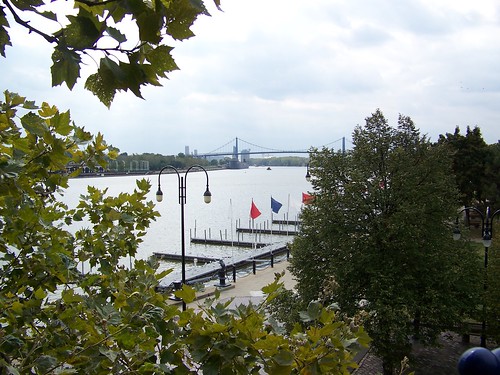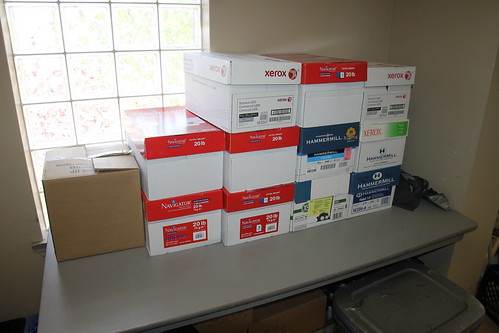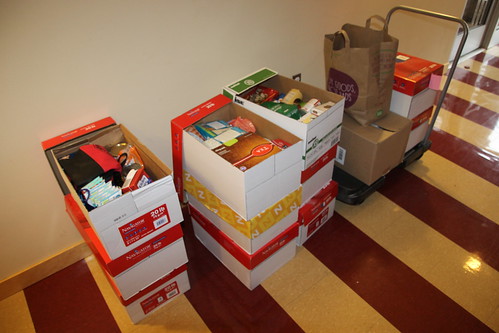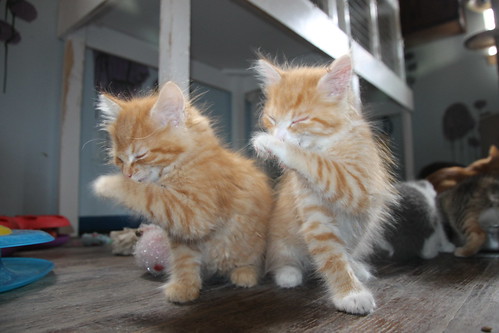 |
| Toledo Ohio (and the Maumee River in 2007) |
NOTE: This is an article I wrote for Toledo Streets Newspaper in 2003. This social enterprise describes itself this way "we're a street newspaper sold on public property by men and women in poverty situations, like homelessness. We provide these self-contracted workers with a product to sell, as well as job training, skills development, enrichment and educational opportunities, and networking for further growth." I am not sure that this ever found its way to the web. I came across the working notes for this article when I was cleaning up - so it gave me the idea that I should recycle the notes (lighten my load) and post the article to my blog (spread the word). It kinda rhymes.
The Human Side of the National Game: The Addie Joss Benefit Game of 1911
Corey Seeman (May 2013)
The nature of fame is truly fascinating. In all walks of life, true fame is built day by day, slowly over time. In sports, notoriety can come from one amazing game or one amazing season, but fame – true fame – can only come from game after game, month after month, and season after season. For athletes, the attainment of fame occurs long after they hang up the cleats, put down the bat, or otherwise drift off into the sunset.
In baseball, when people think of the greatest pitchers who ever stared down a batter from atop the mound, they might list off Christy Mathewson, Walter Johnson, Sandy Koufax, Bob Feller, Bob Gibson, Cy Young, and so on. These are the names that need little explanation to most baseball fans. Come to think of it, even people with only a passing knowledge of baseball has heard of most, if not all of these greats. For these men, their careers were long and distinguished such that there was never any doubt when they retired that they have accomplished what few others had. But that is not the case of all athletes, many of whom succumb to a career shortening injury that leaves them on the cusp of true greatness. Some face tragedy on the way and only accomplish a fraction of what they might have done should the fates had been on their side. Such was the case with Addie Joss…one of the greatest pitchers you might never have heard about.
Addie Joss, as a pitcher, dominated an era like few others have ever done. Sadly, his era ended too soon, passing away two days after turning 31 in Toledo, Ohio. Joss pitched for the Cleveland Indians (then called the Naps for their manager Napoleon LaJoie) from 1902 through 1910. In those 9 years, he won 160 games, lost only 97, won 20 games four consecutive years and had a lifetime ERA of 1.89. On October 2, 1908, he tossed a perfect game vs. the Chicago White Sox, winning 1-0. Two and a half years later, Joss would die because of tubercular meningitis – an illness like his fastball, no one saw coming. The Chicago Daily Tribune even reported that Joss’ mother, who was dispatched from her home in Wisconsin upon hearing of his illness, “…fainted upon noticing the wreath on the door.” Like all tragedies, he was taken too soon.
The shock of his passing was felt not only in his adopted home city of Toledo, where he had played two seasons of minor league baseball, in Cleveland, where he starred for the Naps, but all across baseball. Evangelist Billy Sunday, who was in Toledo at the time of Addie’s death, provided the eulogy at his funeral. Of the things Sunday said that day, one thing rings so true:
“No more will the umpire walk in front of the grandstand and cry out: ‘the pitcher for Cleveland will be Joss.’ No more will the opposing club turn pale, for in the past they realized this announcement was the harbinger of almost sure defeat. The name of Joss has always brought terror to the opposing nine.”
Joss is buried at Woodlawn Cemetery in Toledo. It is so appropriate that he lay to rest in his adopted home town where his baseball career began and where he served as Sunday sports editor for the Toledo News Bee.
Joss had earned a very respectable $5,000 a year in 1910. However, it was very clear to Addie’s team mates that his family needed some assistance to deal with the giant hole created with Joss’ passing. Shortly after his passing, the Cleveland management and his former team mates decided to do something special for the family. The idea was that the Indians would find an open date on their schedule and play a benefit game against all-stars from other teams to raise money that would go to the family. While benefit games were not uncommon, this was the first one setup to include an all-star game and where the proceeds went to one family. The date settled up was July 24, 1911 and what a day it was. The all-star team featured eventual hall of famers Tris Speaker, Eddie Collins, Ty Cobb, Home Run Baker, Walter Johnson, and others. The game itself was not spectacular, but the outcome certainly was. The people of the City of Cleveland purchased over 15,000 and raised nearly $13,000 (with no money taken out for expenses) for the Joss Family (Lillian and their two children, Ruth and Norman). In September 1911, Baseball Magazine wrote in their editorials powerful words about the event that place it in its proper perspective.
The benefit day at the Cleveland ball park in grateful memory of Addie Joss was a touching and beautiful instance of the human side of the national game. The Cleveland owners freely gave the use of their park, the Cleveland team offered their services gladly, while scores of star players throughout the league vied with one another in their efforts to secure a place on the opposing team and thus show some slight token of their esteem for a fellow player who had passed away. In short all the varied interests of organized baseball united in the noble purpose of giving such assistance as lay in their power to the bereaved family of a man who was universally beloved.
This tremendous game not only served as a precursor to Baseball’s All-star game (which started in 1933 as an annual mid-season classic), but established a role for baseball to play in supporting those who had given their life to the sport. Over the years, many events would kindle the fires of humanity that swept through Cleveland in the summer of 1911. But in thinking of the Joss benefit game, it is clear that the management and players of the Cleveland Naps (as well as those who would also contribute) were responding to a higher calling. This generous gift to the Joss family would enable fans in Cleveland to say thank you one last time. On January 14, 1913, the Cleveland Press would write that the Joss Children are “Fine and Happy”, though Norman, who was in the 5th grade at the time, was playing football, not baseball like his famous father.
In 1978, the Directors of the Baseball Hall of Fame and Museum waived the rules that governed election by the Committee on Baseball Veterans that restricted consideration to those who played 10 seasons. The Hall Directors allowed Joss to be considered despite the fact that he played only nine seasons. On August 7, 1978, Joss’ cousin Dr. William Swartz would thank the Hall’s Veteran’s Committee for “…their favorable consideration of Addie’s credentials.” And while Addie Joss left this world too soon, this act placed a capstone on his remarkable career. Like all that preceded him in Cooperstown and those who came after, it was clear that his fame was built one game at a time – enabling us to step back and be amazed at not only his accomplishments on the field, but his place in the hearts of those he played with, and against.
Additional Resources:


